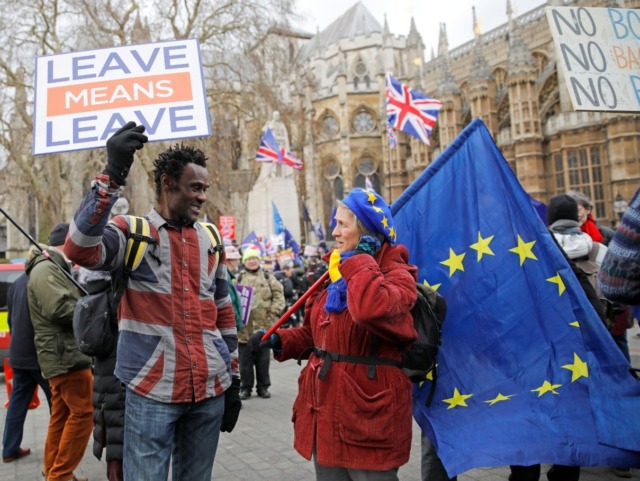The globalist International Monetary Fund has enjoyed a spectacular change of tone over Brexit, and is now predicting the British economy to grow faster than Europe’s in the coming years.
While the IMF cut global growth forecasts, the United Kingdom economy was predicted by the body to continue to grow, fractionally outpacing the European Union’s aggregate rate in 2019, 2020, and 2021, the report said.
The IMF said the UK economy would grow 1.5 per cent in 2021, compared to 1.4 per cent in the Eurozone, which includes some of the world’s top economies — Germany, France, and Italy, who all abandoned their national currencies to adopt a single currency Euro.
Despite a protracted campaign in favour by establishment figures in Britain, the United Kingdom never joined the Euro and is now on track to leave the European Union itself by the end of January.
The positive outlook for the UK in the IMF’s estimation comes despite a long track record from the globalist body of negative predictions about Brexit for Britain, which at times verged on appearing motivated in their persistent doom and gloom. Shortly before the 2016 referendum in which the British people voted to leave the European Union, then-IMF boss Christine Lagarde issued a report claiming leaving the EU could cost the country half a million jobs.
Warning Brexit could push the United Kingdom into recession, the IMF said in 2016 that leaving the EU would cause “large contractions investment and consumption, implying lower output, lower growth, and higher domestic prices.”
The negativity was cited by then Chancellor George Osborne, the author of the so-called ‘project fear’ that aimed to frighten British voters into backing the European Union. He said in 2016: “Not a single serious economist does not think Brexit will be bad for the economy.”
Yet the warnings were subsequently found to be unwarranted, as the UK economy grew — lifted in part by a devalued pound which encouraged exports. A former head of the IMF was particularly scathing of the predictions in 2018, when he suggested the organisation had “made up the numbers” to suit an agenda and wrote: “All official agencies, trapped in an echo chamber, are competing to paint the grimmest picture of economic consequences of a British exit from the European Union.”
Coincidentally, former IMF Christine Lagarde subsequently left the body to become the chief of the European Central Bank — the body that controls the European single Euro currency.
Despite the good news for Britain, the IMF is still warning against a full Brexit, claiming its growth figures rely on Britain making a slow and partial withdrawal. The report claims The UK walking away with a partial deal at the end of 2020 could jeopardise growth, they claim, despite the IMF’s previous predictions on Britain’s Brexit economic performance having been proven substantially wrong.

COMMENTS
Please let us know if you're having issues with commenting.